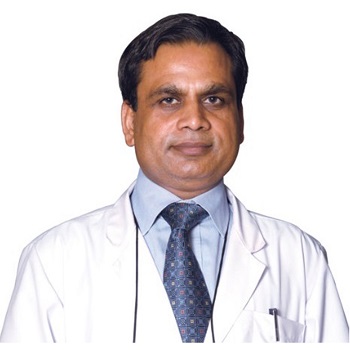
Over the last few years, new techniques have revolutionised the treatment of brain and spinal cord tumours. These treatments with high precision levels are leading to removal of tumours while preserving the organs and leaving the least detrimental effect on their functionality.
 |
Dr. I. C. Premsagar, Organising Chairman Neuro and Spine Onco Update 2022
To spread awareness about these new techniques, Rajiv Gandhi Cancer Institute & Research Centre (RGCIRC) is holding Neuro & Spine Onco Update on 12th March at RGCIRC Rohini Delhi. Neuro & Spine Onco Update is a conclave of doctors in which chosen experts from two of India’s largest and dedicated Neuro-onco set-ups namely Tata Memorial and RGCIRC besides leading lights from major hospitals including AIIMS, GB Pant Hospital, RML hospital and Safdarjung RR Hospital will be delivering talks and sharing their experiences. Leading private hospitals like Ganga Ram, BLK, Max, Apollo, Fortis, Medanta, Paras and Artemis etc. will also be a part of the faculty.
“The Neuro & Spine Onco Update 2022 is one-of-its-kind event in terms of its depth and width where neuro-oncosurgeons, medical oncologists, radiation oncologists, neuro-pathologists, neuro-anaesthetists, neuro-radiologists, neuro-physiologists and neuro-psychologists shall come together to discuss the latest trends in the field of brain and spinal tumours so as to make the management of these tumours technically feasible, surgically safer, more effective and acceptable to the patients,” said Dr. I. C. Premsagar, Chief of Neuro & Spine Oncology at RGCIRC and Organising Chairman of the Neuro & Spine Onco Update 2022.
As a unique feature, The Neuro & Spine Onco Update 2022 will have live workshop on surgery using the techniques of Neuro navigation and Intra operative ultrasound so that young neuro surgeons could gain a first-hand insight into the latest technologies for achieving an optimal onco-functional outcome in the surgery of tumours. During the surgery the two way interaction between the surgeons and the delegates shall not only help in understanding the nuances of the surgery but shall also aid in learning the technical know-how.
The surgery that will be directly shown to the audience in the auditorium will be conducted by Dr. Ali Asgar, Head of Neurosurgery at Tata Memorial along with Dr. Premsagar who will explain about surgical steps being taken in real time. Dr. Ashok Jaryal, a neurophysiologist will monitor neurophysiology like speech center and other functional areas during surgery. This will be Awake surgery in which patient undergoing surgery will remain active – talking, singing and moving limbs.
Experts will speak about primary tumours of nervous system (that start in the brain itself) and also the tumours of other body parts which get metastasized to the nervous system (tumors that start outside the brain like lung tumour and through blood reach the brain where they increase in size and affect the function of that organ).
Speaking about new techniques to treat brain tumours, Dr. Premsagar said, “The new technique of Neuro-navigation helps the surgeon sharply identify the tumour in brain or spinal cord since precision is a must in brain or spinal surgery. Similarly, full spectrum intra operative ultrasound of the brain and spine helps us take out the tumour as much as possible with the functional preservation.”
When the tumour is taken out surgically, a small part of it may still be left behind in the form of its roots. Radiation oncologists will present expert deliberations on how this part of a tumour that still remains to be taken out can be burned by the radiation through the different types of conventional radiations available in India including IGRT and IMRT. Other forms of radiation therapies that will be discussed include CyberKnife and Proton Therapy.
Besides, pathologists from different parts of the country will provide an update on the latest WHO classification of CNS tumours that takes into consideration molecular diagnostics. Earlier we just had histopathology but now molecular testing tells us more about the tumour and its prognosis, added Dr. Premsagar.